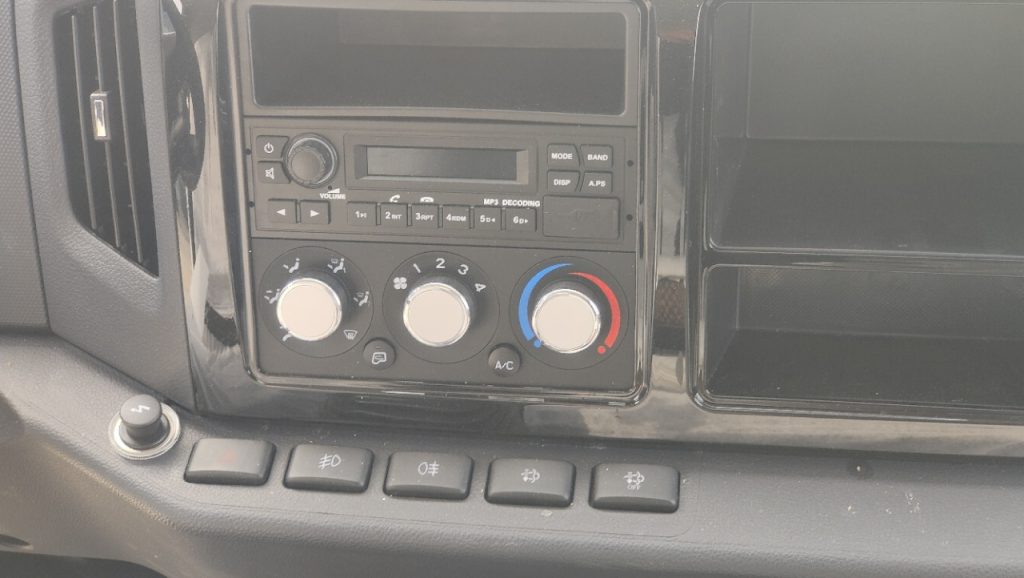Introduction
Work truck trailers are essential assets for businesses involved in hauling goods, equipment, and materials. They serve as reliable workhorses, enabling transportation efficiency and productivity. However, to maintain their optimal performance and ensure the safety of both the driver and the cargo being transported, regular maintenance is crucial. This article will provide a comprehensive guide to work truck trailer maintenance, covering key aspects such as inspections, routine checks, maintenance schedules, and best practices.
1. Understanding Work Truck Trailer Components
Before delving into maintenance procedures, it is essential to have a basic understanding of the various components involved in a work truck trailer. The key components include the chassis, suspension system, braking system, tires, lights, electrical system, hitching mechanism, and cargo area. Each of these components plays a vital role in the performance and safety of the work truck trailer.
2. Regular Inspections
Regular inspections are the foundation of a proactive maintenance routine. Inspections should be performed before and after each use, as well as at regular intervals determined by the manufacturer's recommendations. These inspections help identify any potential issues and address them promptly, minimizing the risk of breakdowns and accidents.
a. Pre-Trip Inspection: Before each trip, perform a pre-trip inspection to ensure that the trailer is in optimal condition. This inspection should include checking the tires for wear, ensuring proper hitching, inspecting lights and signals, and verifying the functionality of the braking system.
b. Post-Trip Inspection: After each trip, conduct a post-trip inspection to identify any damages or issues that may have occurred during transit. This inspection should include checking for any loose or broken components, examining the cargo area for damage, and inspecting the tires and brakes for signs of wear.
c. Periodic Inspection: In addition to pre and post-trip inspections, schedule periodic inspections to assess the overall condition of the work truck trailer. These inspections should be more thorough and may require the assistance of a professional mechanic. They should include a detailed examination of the suspension system, electrical system, chassis, and braking system.
3. Routine Maintenance Checks
Routine maintenance checks are essential for keeping the work truck trailer in peak condition. https://www.worktruckmaker.com/truck-mounted-crane/ should be performed on a regular basis, according to the manufacturer's recommendations. The following are some key routine maintenance checks that should be conducted:
a. Tire Maintenance: Regularly check the tire pressure and inspect for signs of wear, such as uneven tread wear or bulges. Ensure that tires are properly aligned and balanced, as imbalances can lead to premature wear and reduced fuel efficiency.
b. https://www.worktruckmaker.com/wp-content/uploads/2024/07/微信图片_20240702161049-1024x768.png : Lubricate all moving parts, such as hinges, couplers, and suspension components, as per the manufacturer's guidelines. Proper lubrication reduces friction and extends the lifespan of these components.
c. Brake System: Inspect the brake system regularly for any signs of wear, such as worn brake pads or leaking brake fluid. Ensure that the brake system is functioning properly, as it is crucial for safe operation.
d. Electrical System: Check the electrical system, including lights, signals, and connectors, for any loose or damaged components. Ensure that all lights are working correctly and that the electrical connections are secure.
e. Cargo Area: Inspect the cargo area for any damages, such as dents, cracks, or loose flooring. Repair or replace any damaged components promptly to maintain the safety and functionality of the work truck trailer.
4. Maintenance Schedule
Creating a maintenance schedule is crucial for ensuring that all necessary maintenance tasks are performed on time. The maintenance schedule should include both routine maintenance checks and periodic inspections. It should also consider factors such as mileage, usage patterns, and the manufacturer's recommendations. By adhering to a maintenance schedule, potential issues can be identified and addressed before they escalate, avoiding costly repairs and reducing downtime.
5. Best Practices for Work Truck Trailer Maintenance
In addition to the specific maintenance tasks mentioned above, the following best practices can help in maintaining work truck trailers:

a. Keep Records: Maintain detailed records of all maintenance activities, including inspections, repairs, and part replacements. This documentation can help track the trailer's maintenance history and assist in warranty claims.
b. Train Drivers: Educate drivers on proper trailer operation, including hitching procedures, safe loading practices, and how to identify potential maintenance issues. Well-trained drivers can be an invaluable asset in identifying and reporting maintenance concerns.
c. Cleanliness: Keep the work truck trailer clean, both inside and out. Regular washing and removal of debris can help prevent corrosion and extend the lifespan of the trailer.
d. Storage: When not in use, store the work truck trailer in a secure and dry location to protect it from the elements. This will help prevent rust and other damages that can occur due to exposure to harsh weather conditions.
Conclusion
Regular maintenance of work truck trailers is essential to ensure their optimal performance, efficiency, and safety. By conducting thorough inspections, adhering to routine maintenance checks, following a maintenance schedule, and implementing best practices, businesses can extend the lifespan of their work truck trailers while minimizing the risk of breakdowns and accidents. By treating work truck trailer maintenance as a priority, businesses can maximize their investment and maintain a safe and reliable fleet for their transportation needs.
